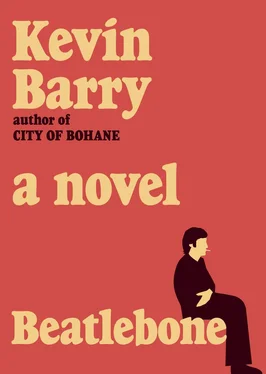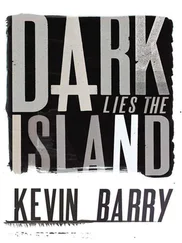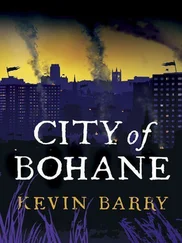No, John. This place would have had no more than a poor farmer in it. And only for a few weeks at a time, for the sheep, in summer.
I see.
Hauling the maggot out of his stomach and drinking green envy and spitting into the fireplace.
You paint it beautifully.
My own father used these places, John. He would cross over in the springtime and the summer. We would not see him for weeks on end. Which was a relief to all fucken parties. He was not right in himself ever nor right in the world. There were times he was so bad he couldn’t lift a cup of tea to his face. Do you want tea, my mother would say, or more likely she would ask me to say. The father would look back at me, with the eyes like stones inside his head, and he’d say, I no more want tea, Cor, and he would look away and settle down lowly to himself. Like a wounded animal settling to its lair. There was no easy relief for him. The way that he groans — I can hear it still, John, I can hear the same groans exactly rise up from myself some mornings. It’s then I fucken worry. Did you know that the groans get passed down to us? My father would bring sheep out to the islands in the summer. I wonder if he was easier in himself when he was on his own. I’d doubt it. He was an intelligent man but it would lead him — the same mind — into dark and difficult places. He would travel inside himself. He would go utterly quiet. You’d know that he was gone deep and to someplace bad because all the colour would leave his face. As if someone turned the bar off on an electric fire — as quick as that. He would go very pale and I would say nothing and my mother would say nothing and I would go outside but I wouldn’t even kick a ball against the gable. It might take an hour or two for it to pass, sometimes a week. He would move lightly through the yard then and you would know it had passed because he would say right so, Cor, and he might even rub my head. The colour would not yet be back in his face. Wherever it was that he had been. But he would move with a bit of a skip to him to reassure me and to make out he was the finest again.
And now it’s Cornelius weeping.
Fathers and sons, isn’t it?
Oh fuck off, John! You have me fucken ragged.
——
They wait out the weather against the walls of the memorious ruin. He looks through the fallen window and onto the bay. A white Spanish horse races across the low waves. This is news he should keep to himself. He squints his eyes halfways shut to make it a trick of the light — the horse stops and turns and raises onto its hind legs and snorts pale fire. It takes off again into the mist and distance. John falls into a huddle and grips himself hard and shuts his eyes to break the spell.
What’s the latest, John?
As a matter of fact, Cornelius, I think I’ve come loose of my fucking bean completely.
No wonder. The wind is after shifting east. There’s none of us right when the wind shifts east.
But I’m having vision-type fucking things, Cornelius!
It would surprise me if you weren’t.
——
The weather continues as roughly.
He has a fag and listens hard.
He travels.
I’m away again, he says.
Where’ve you landed, John?
On fucking Mount Street. I’m thinking of the late fifties. It’s a night in the winter and there’s a vicious wind come up the town. At this time I’m at the art college. My head’s all over the road. It’s early in the nighttime and I’m stood outside the art college. I’m stood at the corner of Mount Street and Pilgrim Street. I’m talking to some goon about his new band he’s got up and he’s asking about band names and what do you think of this, John, and what do you think of that, John, and I’ve no idea what it is he’s gone and called his fucking band, The Flying Testicles, what-fucking-ever, and I’m going yeah, alright, that’s good is that, and it’s then his face starts to give.
Give?
I don’t know how to describe this, Cornelius. But the years are peeling off and time is shifting.
I know the way.
He becomes a different person. He comes from some other time. He is away out of this cold winter, he says, and this miserable air and he tells me about Spanish places and the port of Càdiz and the orange trees in fucking Màlaga, all this, and he’ll miss his girl so much — her long brown hair — and he’ll miss his dotey Irish mam — and I cannot get away quick enough I’m that spooked. I walk off and wave and he goes, so long then, John, and I’m away up Rice Street, I’m away for Ye Cracke — it’s early in the night and empty — and I sit in the war room on my own, a pint of bitter, in the snug, and I have a fag, try to settle, and the city is moving outside me, all around me, like it’s come loose, and I don’t know where the fuck I am nor when and you know what I’m saying to myself?
What?
I’m saying—
Cling the fuck on, John.
——
Cornelius?
Yes, John?
Do you think about your old man still?
It wouldn’t be a happy dream for me, John. Did I not say? He topped himself for a finish.
Oh. I’m sorry.
He was nearly as well off out of it. And what good would it do to think of him in that place he went to?
No good. You must not ever think of that place. You must not ever think of that dark and glamorous place.
——
How did it happen, Cornelius?
Well. In the same way that an old dog gets to a certain age and a level of disregard for itself and it just takes off some night into the bushes. My father heard what was coming for him. And we didn’t find him after, in the way you wouldn’t find an old dog — you just wouldn’t — because my father, I have no doubt, put himself in the sea. It was all his life nearby and it would have been an idea always of a way out. He would not have been the type to string himself from the rafter of a barn. He was considerate. There was no show in the man.
——
Evening moves across the bay. With it there comes a calmness that could be taken almost for reason. The wind drops to near enough nothing. They leave the sour ruin gladly and make for the boat again. It puts out to the dark water.
We’re getting closer, John. Despite ourselves.
The boat moves across the bay. The tiny islands rest and idle in the evening light. His heart comes down to a slow, dull, even thumping. In no time at all the cliffs of Dorinish Island can be made out in a clear aspect, rising.
Oh there, he says.
They come at last to his island.
There’s a tube of toothpaste in the suitcase, John. There’s a brush to go with it. There is a small bottle of whiskey for emergency situations. There are tins of beans and matches and there are kindling sticks dried well. There will be rain in spats but this place will dry you as quick as it’ll wet you. There’s bread. There is a package of cooked ham cut thick in slices. Ate the fucken ham whatever you do. If you come across on the rocks a large greenish egg not much smaller than the size of your own head and speckled, I want you to walk a long, slow curve around it — it’ll be a tern’s egg and the fucken mother will have your eyes out if you go near it and it would be an awful thing for a man to lose an eye to a maddened bird on his own small island in Clew Bay. Do you hear me, John?
Yes, Cornelius, I’m listening.
——
He stands on the island and waves as the boat moves slowly back to its own world. He has the belted leather suitcase by his feet. He wears the old man’s suit. The gulls hover above the water to reel down the night. The first lights are beading across the mainland now. He listens intently — oh let there be a sign that this is not the end place. The hollow sound the sea makes speaks of nothing so much as the hushed quiet of the big sleep that’s to come, maybe soon, maybe late. The island is cold and loud with birds — he is too scared to turn and face into it. The boat becomes smaller in the distance; it disappears. He tries to put himself together again. His lips move to make words and he looks out for a long time over the dark water. He is falling again. He wants to be home now and away from this cold place. He wants never to feel this old again. The mainland lights are many and hopeful across the distance of the water.
Читать дальше












